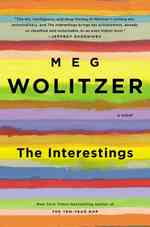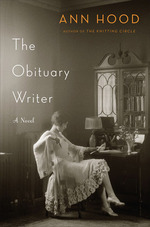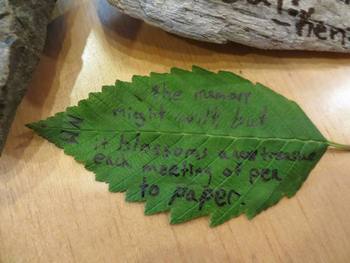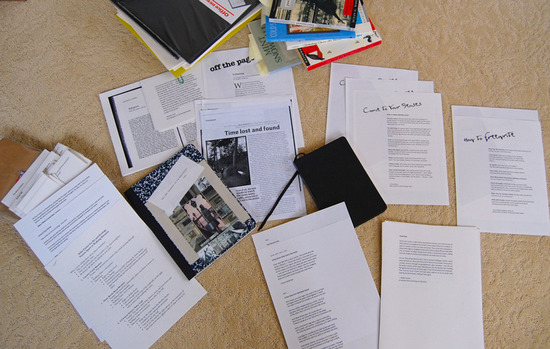I love that mad scribble . . .
and then, sliding different words
across my tongue until it finds
the perfect sound.

Because a few questions can offer endless insight, I'm happy to present Fast Five — interviews with great writers, and chances to win good books. (To win, simply post your name and contact info in the comments section. See details below).
 Margaret "Maggie" Chula has been writing and teaching haiku and Japanese poetic forms for over 30 years. She is the author of seven poetry collections, and her haiku have appeared on Itoen tea cans in Japan, on a construction site for the new transit line in Portland, and on billboards in Tokyo train stations. She frequently collaborates with artists, musicians, and photographers, and currently serves as president of the Tanka Society of America, and as poet laureate for Friends of Chamber Music in Portland, Oregon.
Margaret "Maggie" Chula has been writing and teaching haiku and Japanese poetic forms for over 30 years. She is the author of seven poetry collections, and her haiku have appeared on Itoen tea cans in Japan, on a construction site for the new transit line in Portland, and on billboards in Tokyo train stations. She frequently collaborates with artists, musicians, and photographers, and currently serves as president of the Tanka Society of America, and as poet laureate for Friends of Chamber Music in Portland, Oregon.
Your short form poetry has earned numerous awards and recognition. What is it about the short form that draws you?
My love affair with haiku and later with haibun and tanka began when I lived in Kyoto ("Tranquility and Peace Capital"). For 12 years, my husband and I lived in a traditional Japanese-style house. Built after World War II from low-quality materials, there was a thin line between outdoors and indoors. Every winter mice nested in the closet. In rainy season, centipedes scuttled across the walls. Summer brought moths doing their frantic dance inside paper lanterns. For a few weeks one autumn, a weasel made his nightly visit to the garbage can in the back hallway. Tanuki (raccoon dogs) and a red fox frolicked in our moss garden. Our back door opened onto a rice field where we observed the rice cycle: flooding the paddy, planting rice shoots, cutting the rice in autumn, hanging the sheaves on bamboo poles to dry, and the final winnowing. Even in winter the fallow fields had their own beauty, filling with snow like a scene from an old woodblock print.
This awareness of seasonal changes is very Japanese. It’s expressed in every aesthetic from tea ceremony to flower arrangement and, of course, in poetry. Honest, direct, and profound, haiku suited my lifestyle of simplicity—living so intimately with nature!
The university where I taught English and creative writing had an extensive collection of English-language poetry. At this avant-garde university, several Japanese professors at Seika had studied abroad and met beat poets like Alan Ginsberg and Gary Snyder (who both came to lecture while I was there). The library also had English translations of the great haiku masters: Basho, Buson, Issa, and Shiki. I read all of R.H. Blythe books, copying down my favorite haiku in a notebook. There is something about transferring poems to paper that makes them come alive and be a part of your own experience.
Eventually, I began to compose my own haiku. Even with my busy teaching schedule (12 classes a week), I designated one day a week as a writing day. Hopping on my 50cc motorbike, I’d head up to a temple in the mountains for inspiration. I especially liked the winter months when I could be alone (Japanese hate the cold). Sitting on tatami and drinking green tea while watching snow fall on the garden, I’d fill my notebook with haiku.
I wrote in seclusion for a couple of years until I was introduced to an American poet who had lived in Kyoto for 30 years. Edith Shiffert and I met regularly for lunch or coffee at a kissaten or at one of our houses to share both our lyrical poetry and haiku. Sometimes we’d go on an excursion and write haiku together. Edith is now 98 and still lives in Kyoto.
After all this background, I would simply say that, for me, a haiku is like a drop of dew containing a single moment of beauty, a reminder of the transiency of our lives. The longer five-line tanka reveal our deep connection to nature as we live our lives filled with desires, loss, love, and continual change. Haibun invite us to tell stories in prose, interspersed with haiku, which surprise us with the unexpected. After 33 years, these Japanese poetic forms continue to entice and intrigue me.
Some people say "first thought best thought." Others edit a piece into place. What is your writing process?
First, and most importantly, I try to be true to the experience. Haiku and tanka bloom from a moment of revelation. Whether it’s a spiritual awareness or just seeing something familiar in a new way, I jot down the words without judgment. Because haiku and tanka are so short, it’s easy to roll the words around in my head, say on a walk, and come up with a satisfying order. Over the years, I’ve become more alert to moments of synchronicity—both profound and humorous, such as
all at once
peony blossoms drop
clap of thunder
As haiku poets (or any poets for that matter), we need to be aware of the natural world—not only through observing it through a child’s eye, but by understanding the characteristics of flowers, birds, animals, etc. As Bashô said: Learn of the pine from the pine, learn of the bamboo from the bamboo. The enjoyment of this peony haiku is enhanced by knowing that, in Japan, it’s a rainy season flower. The peony’s delicate petals and fragrance are welcome in this month of heavy humidity and heat. All at once can mean both both suddenly and that peony petals fall at once, a characteristic of this flower. Both the petals falling and the thunder booming outside offer a moment of synchronicity. I actually laughed out loud when this happened: those delicate blossoms making such a loud noise when they tumbled onto my desk.
How much did I edit this one? Not much. Most likely, I took out a few articles or adjectives. In such a short form, every word must contribute to an image, mood, or action. The verb, especially, needs to be strong, both in sound and effect. Rearranging lines is essential in order to have that aha at the end. One great thing about haiku is that, by using a few well-chosen images, there is no need to explain or embellish.
What is your favorite poem in your latest book, Just This. Why?
The tanka in Just This express our endless states of longing (evoked by fragrance), loneliness caused by what’s been lost or never was, and memories passing away or forgotten. In the final section, as at the end of our lives, there comes an acceptance of things just as they are.
Just This is dedicated to my mother. Tanka about her final days thread throughout the five sections. Here are a few of my favorites:
Vicks VapoRub
the smell of Mother in winter
her hands rubbing
my small chest back and forth
deeper into my heart
winter afternoon
mother and I sort through
her jewelry box—
accepting baubles
just for their stories
the hollow stems
of summer daylilies
pull out with ease
Mother has fallen
and broken her femur
New Year’s Eve
my ninety-year-old mother
puts rollers in her hair
first red camellia
unfurls in the snow
and the one I often end my readings with
this morning
pale white light
shines through the window
it’s snowing again
and Mother is gone
Let’s talk about creative crossover. You’ve collaborated with an artist on a project about Japanese internment camps, have performed a one-woman show about Japanese poets, and currently serve as poet laureate of the Friends of Chamber Music (Portland, Oregon) for which you have written over 40 concert-inspired poems. How do these collaborations influence, enhance, or challenge your writing process?
I have to admit that I’ve become a collaboration junkie. Why limit yourself to one art form? Whether it’s a one-woman show combining costumes and Japanese music with poetry or writing poems to an artist’s work, or composing poems at a chamber music concert, this blending of the arts excites me.
Here’s what I wrote in my book What Remains: Japanese Americans in Internment Camps, a seven-year collaboration with quilt artist Cathy Erickson:
Collaboration is like a mirror that shows
each artist not just a mimicry of her work but reflects
a subtlety that she was not able to see before.
The words of the poem allow the quilt artist to look deeper
into the fabric of her creation to see the layers
that were not visible before. For the poet, words
take on texture, color, linear rhythm—a rhythm
of lines and shapes rather than iambs.
The sum of the piece becomes more than itself.
My approach to writing the poems to Cathy’s quilts was to follow the aesthetics of the Japanese style of painting called haiga. Hai is translated as poem (as in haiku) and ga is painting. Haiga, then, is a painting accompanied by a poem. The best-known example would be a hanging scroll of a sumi-e ink painting with a poem brushed vertically in calligraphy. What is the relationship between the painting and the poem? Rather than merely describing the artwork, the poem in a haiga shifts away from any obvious interpretation and invites the viewed to appreciate the visual image in a new way. A successful haiga creates a synergy where the interaction between the artwork and poem generates yet another level of interpretation and enjoyment. Often where one art form ends, another begins. There is a dialogue between the two forms. Both have a visual quality spoken in two different languages.
This is how I approach collaboration, whether working with a musician, a dancer, a photographer, or an artist.
You are an accomplished writer, poet and literary leader. What do you know now that you didn't know when you first started writing?
I didn’t know how this passion to write would continue to grow over the years — how it would become such an essential part of my life. I love the blessing of inspiration (even when it comes at 2am), that mad scribble of words and phrases, and then the process of moving lines around, finding the perfect adjective, sliding different words across my tongue until I find the perfect sounds.
When I moved to Portland in 1992, I didn’t realize that I would find such a supportive, nurturing poetry community. I have been sustained and enlivened by the members of my two poetry groups: the Pearl Poets and Word Sisters.
Bonus Question: I’m a word collector and urge others to keep a running list of favorite words. What are your favorite words?
I like words with interesting sounds, like peripatetic
the s’s: clouds, solace, shadow, caress, susurration
huddle
puce
jocular
and a new favorite borborygmos (loud rumbling, gurgling, and tinkling noises heard in intestinal activity).
 Win this book!
Win this book!
To win a signed copy of Just This by Margaret Chula, add your name and contact info in the comments section below. Feeling shy? Email me, with Just This in the subject line: dcm@drewmyron.com
Enter by August 15, 2013. A winner will be chosen at random and announced on August 16, 2013.
Feeling inspired? Share your own short form poem with us.
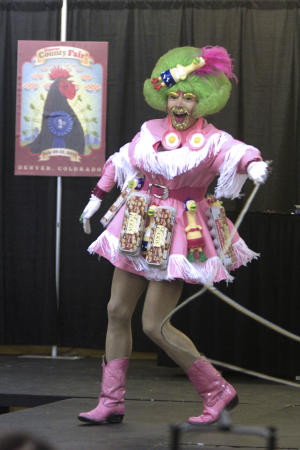 Nuclia Waste at the Denver County FairIt's Thankful Thursday, a weekly pause to appreciate the people, places and things in our lives. Joy contracts and expands in proportion to our gratitude. What makes your world expand?
Nuclia Waste at the Denver County FairIt's Thankful Thursday, a weekly pause to appreciate the people, places and things in our lives. Joy contracts and expands in proportion to our gratitude. What makes your world expand?










